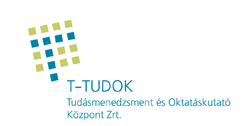Leonardo TRaKSforA
Leonardo partnership project “Training Requirements and Key Skills for Artists and creative practitioners to work in participatory settings“ (TRaKSforA) brought together a strong partnership of organisations from across Europe to develop a Self-Assessment Competency Framework (SACF) for use by artists and other creative professionals working in participatory settings (such as schools, hospitals, community centres, youth centres, cultural houses, etc.). The project involved partners from seven countries: UK, Czech Republic, Hungary, the Netherlands, Norway, Belgium and Croatia, along with other partners supporting the project work, and was carried out from August 2013 to July 2015.
Artists are ever more active as professional trainers, innovators, initiators of change and community development. However, the increasingly active role of artists in education, community development and other areas is not sufficiently supported by their systematic training and professional development in many member states. This project aimed at providing an effective tool, the Self-Assessment Competency Framework, which specifically defines the set of professional skills artists need to successfully develop the creative and transversal skills of the communities they work with. The SACF also provides a common referential point for professional development of artists across member states and enables future work on improvement of training and development opportunities of artists and creative professionals. The tool is designed so that it can be of use to existing and potential creative practitioners, training providers, as well as the practitioners' potential or existing employers and people working with them in some capacity.
The project partnership first considered the key skills that artists need to work in participatory settings. Research of existing competency frameworks followed, as well as learning from practice of project partners and other institutions in partner countries. This ensured broad background information which served as basis for the SACF and case studies development. Partners participated in six meetings and organised case study visits and roundtable discussions in each partner country as well as a practitioners' forum in which invited artists worked in local schools; they worked on SACF development, tested the SACF in co-operation with artists and disseminated the outcomes. The main outcomes of the partnership work were: a ready-to-use SACF available freely; a set of case studies from partner countries, exploring the key competencies identified; and recommendations for VET providers.
